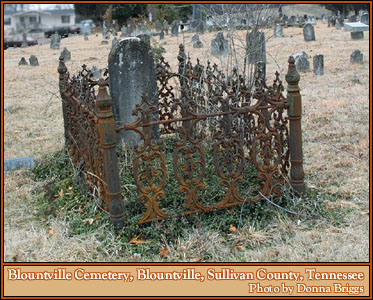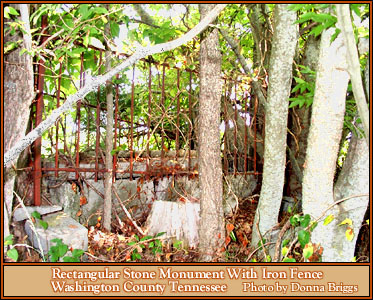

|
Iron grave enclosures or fences are often
seen in older cemeteries, especially around a single grave or a family plot.
Occasionally, a whole cemetery could be enclosed by an iron fence.
They fences were either cast iron, wrought iron, or a combination of both. The
complete cast iron fence could be purchased fully made and then assembled on site.
These were catalogue items. The wrought iron fence was usually made by the
local blacksmith and could include some commercial cast iron parts such as
pinnacles. It could also be fabricated from commercial bar stock. Our first image shows a full cast iron fence. This type of cast iron fence is popular on the antique market. Just think, what may have been the iron fence around your ancestor’s grave may now be a garden gate for some restored Victorian house. Of course, many iron fences disappeared in the scrap drives of World War II. Our second image shows a fence made from bar stock. It encompasses a rectangular “box” stone monument. It is located in the Chuckey area of Washington County, Tennessee. It is not located in a cemetery. The iron fence may not be as old as the box stone monument. The inscription reads: Abel Wiley Son of Christopher and Martha Wiley Born in Burlington Co. New Jersey on Nov’r 8, 1765 Died Feb’ry 7, 1821 in Washington Co. Tenn. |




Return to: Project Home Page
Page © 2002 Fred Smoot